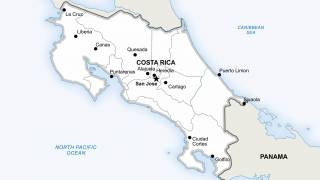CDC Deploying 100 Staff to Screen Arriving China Passengers for 2019-nCoV

The US Centers for Disease Control and Prevention (CDC) announced it was taking immediate action to prevent the spreading of China’s ‘Novel Coronavirus’ in the USA.
CDC officials said in a statement published on January 17, 2020, they will begin taking temperatures and asking about symptoms of passengers who arrive from the city of Wuhan, China.
Located in central China, Wuhan has been the epicenter of this new coronavirus outbreak, now labeled ‘2019-nCoV’.
Human coronaviruses were first identified in the mid-1960s. The best-known Conoaviruses are Middle East Respiratory Syndrome (MERS-CoV) and Severe Acute Respiratory Syndrome (SARS-CoV).
Starting January 17, 2020, travelers arriving at San Francisco (SFO), New York (JFK), and Los Angeles (LAX) airports will be screened if they departed from the city of Wuhan.
“The investigations into this novel coronavirus are ongoing and we are monitoring and responding to this evolving situation,” said Martin Cetron, M.D., Director of CDC’s Division of Global Migration and Quarantine.
Based on current information, the risk from 2019-nCoV to the American public is currently deemed to be 'low’.
Nevertheless, the CDC is taking proactive preparedness precautions.
Entry screening is part of a layered approach used with other public health measures already in place to detect arriving travelers who are sick, such as detection and reporting of ill travelers by airlines during travel and referral of ill travelers arriving at a US port of entry by Customs and Border Protection (CBP), to slow and reduce the spread of any disease into the United States.
To get the information you need to smoothly navigate the process and procedures if you are a visitor to the United States, please visit the CBP website.
CDC said it is deploying about 100 additional staff to these airports to supplement existing staff at CDC quarantine stations located at those airports.
U.S. Quarantine Stations are part of a comprehensive Quarantine System that serves to limit the introduction of infectious diseases into the United States and to prevent their spread.
Quarantine stations have responsibility for enforcing foreign quarantine regulations at all ports of entry within its assigned area of jurisdiction.
The CDC previously issued and updated a 2019-nCoV Level 1 Travel Alert.
The upcoming Chinese New Year celebrations at the end of January 2020 will cause an increase in the volume of travel to/from China and within China, increasing the likelihood of possible 2019-nCoV cases arriving in the USA.
The ECDC said on January 17th 'There are no specific guidelines for assessing the risk of 2019-nCoV transmission during a flight. Assessment should be made on a case-by-case basis.'
'As the current level of uncertainty regarding the transmission of 2019-nCoV is high, comprehensive contact tracing of confirmed cases should be considered and if this is not possible, efforts should be made to at least trace passengers seated in the same row and passengers seated two rows in front or behind the index case.'
Coronaviruses are a large family of viruses that cause illness ranging from the common cold to more severe diseases.
Coronaviruses are zoonotic, meaning they are transmitted between animals and people. A novel coronavirus is a new strain that has not been previously identified in humans. Coronaviruses are named for the crown-like spikes on their surface.
Outbreaks of novel virus infections among people are always of public health concern. The risk from these outbreaks depends on the characteristics of the virus, including whether and how well it spreads between people, the severity of resulting illness, and the medical or other measures available to control the impact of the virus.
Travel alerts are published by Vax-Before-Travel.
Our Trust Standards: Medical Advisory Committee

























